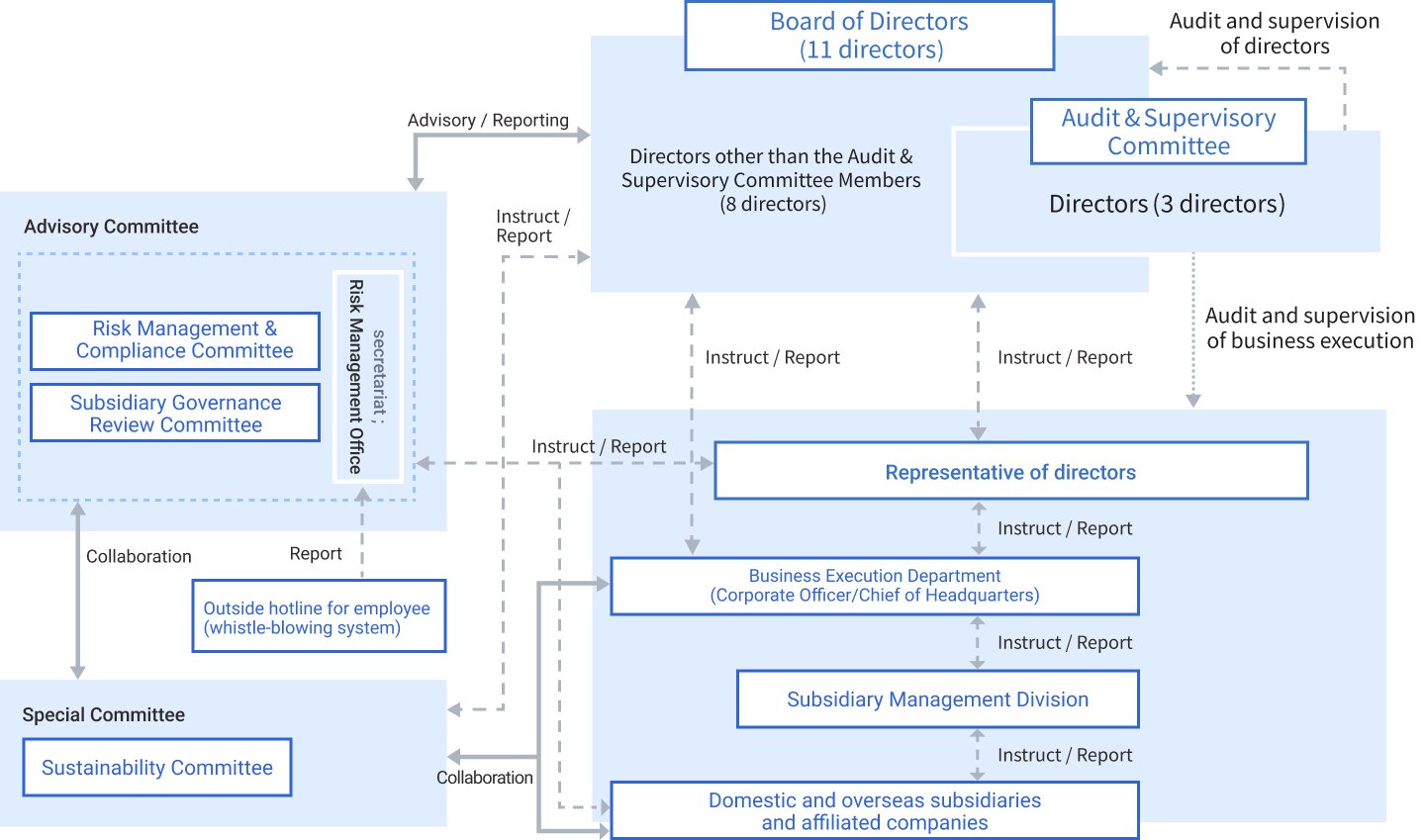
Policy
Accordingly, we work to conserve resources and reduce the environmental footprint of our business activities.
Moreover, we consider it our mission to provide opportunities for people to experience and learn about our planet's rich environment and biodiversity as something we can do for a sustainable world as a company with a heritage in the tourism industry.

Disclosure in accordance with the TCFD Framework
We will continue to promote and improve our disclosure in line with the TCFD recommendations.
Addressing climate change
(information disclosure based on TCFD recommendations)
Strategy
We will promote priority measures for items with high risk significance and long-term impact.
Physical Risk
| Impact | Item of risk/opportunity | Measures | Period |
|---|---|---|---|
| High |
Increasing frequency of typhoons, heavy rains, heat waves, etc. and increasing severity of damage |
|
Short-Long |
| Medium | Suspension or delay in service provision due to data center (DC) damage caused by natural disasters |
|
Short-Medium |
Transition risk
| Impact | Item of risk/opportunity | Measures | Period |
|---|---|---|---|
| High |
Changes in customer behavior and preferences due to increased interest in climate change |
|
Short-Long |
| Medium | Cooling consumer sentiment due to rising service prices due to soaring fuel prices |
|
Short-Long |
| Medium | Decline in services due to environmental changes such as rising temperatures and sea levels, and the enactment of new regulations, laws, and ordinances |
|
Medium-Long |
| Medium | Decrease in corporate value and decrease in investment and business partners when climate change efforts are judged as insufficient |
|
Short-Long |
| Low | Increase in business operating costs due to restrictions on vehicle operation and taxation according to emissions because of stricter regulations on GHG (greenhouse gas) emissions |
|
Medium-Long |
| Low | Increase in business operating costs due to the introduction of carbon pricing |
|
Long |
Short (~FY2024), Medium (FY2025~FY2026), Long (FY2027~FY2030)
*01 December 2023
Governance
Its Sustainability Committee, which is chaired by the president and representative director, takes the lead in discussing important policies and measures, monitoring progress toward targets, and promoting sustainability initiatives.
This is done in collaboration with the Risk / Compliance Committee, business execution departments, and domestic and overseas subsidiaries.
Important matters discussed in the Sustainability Committee are submitted to the Board of Directors for deliberation and approval.
Further, all employees strive to foster a corporate culture and environment that respects the rights and positions of stakeholders and upholds sound ethics in business activities in accordance with the HIS Group Code of Conduct.
Sustainability Promotion Structure

Risk management
The Sustainability Committee and the Risk / Compliance Committee collaborate to identify, evaluate, and manage climate-related risks.
The Risk Management Office collects information on business risks for the Group as a whole, including risks related to climate change, and shares its findings with the Risk / Compliance Committee.
The committee develops a management system for identifying, analyzing, evaluating, and responding to potential risks, and conducts activities to prevent risks from materializing.
The Sustainability Committee engages in activities such as ascertaining risks associated with climate change, analyzing them in accordance with the framework of the TCFD recommendations, discussing important policies and measures related to the environment, and monitoring progress toward targets.
It provides reports to the Board of Directors as deemed necessary.
